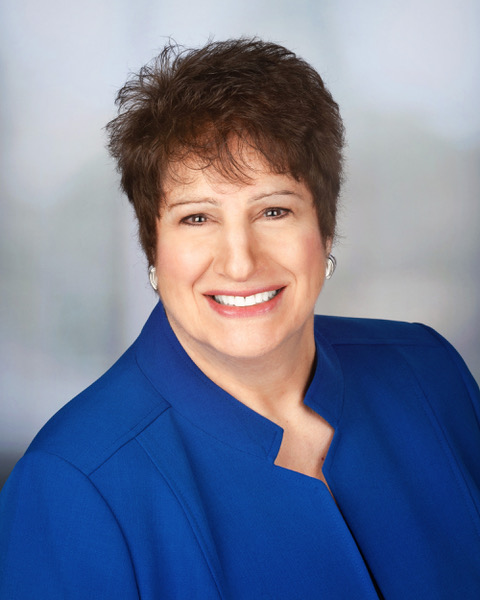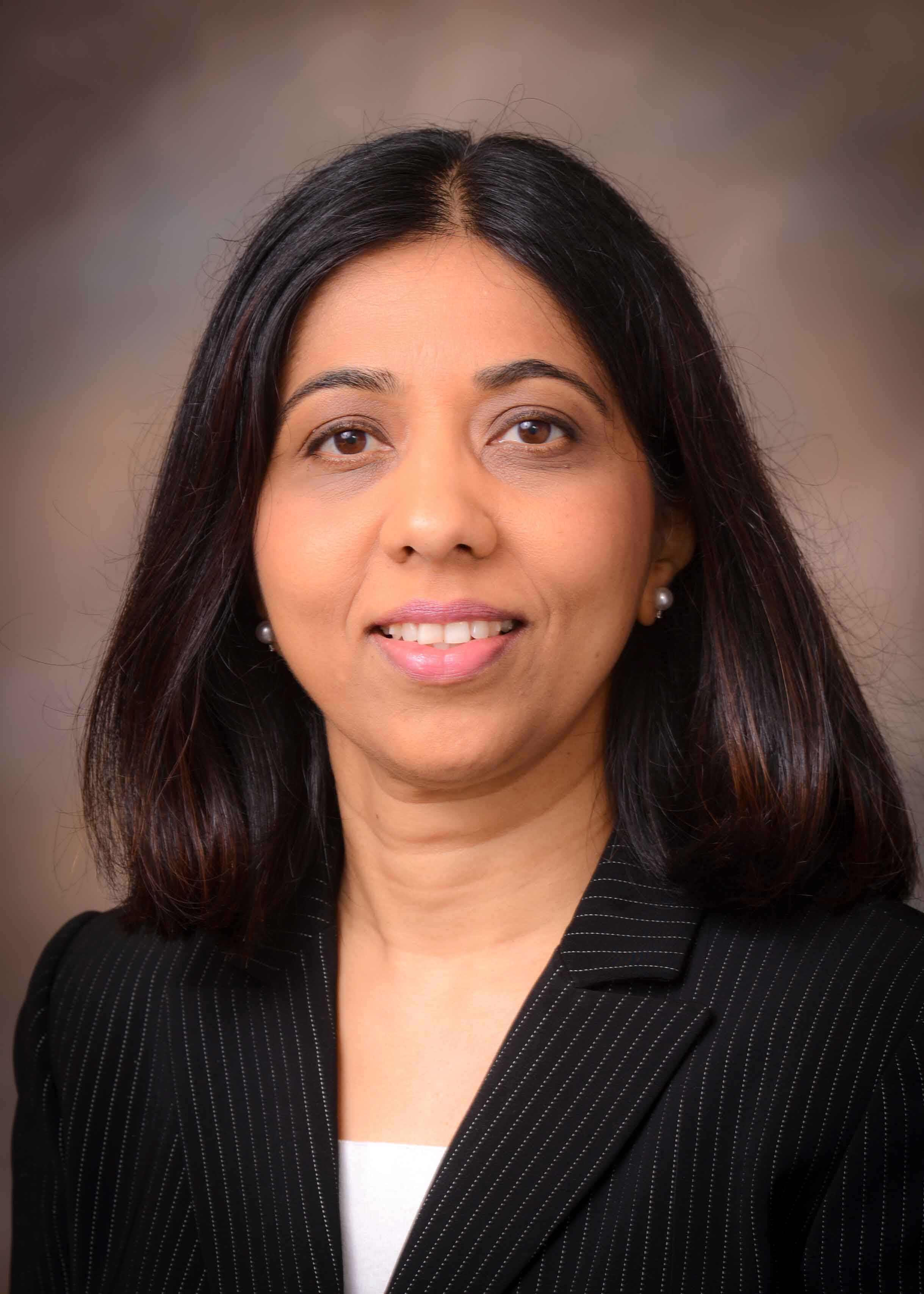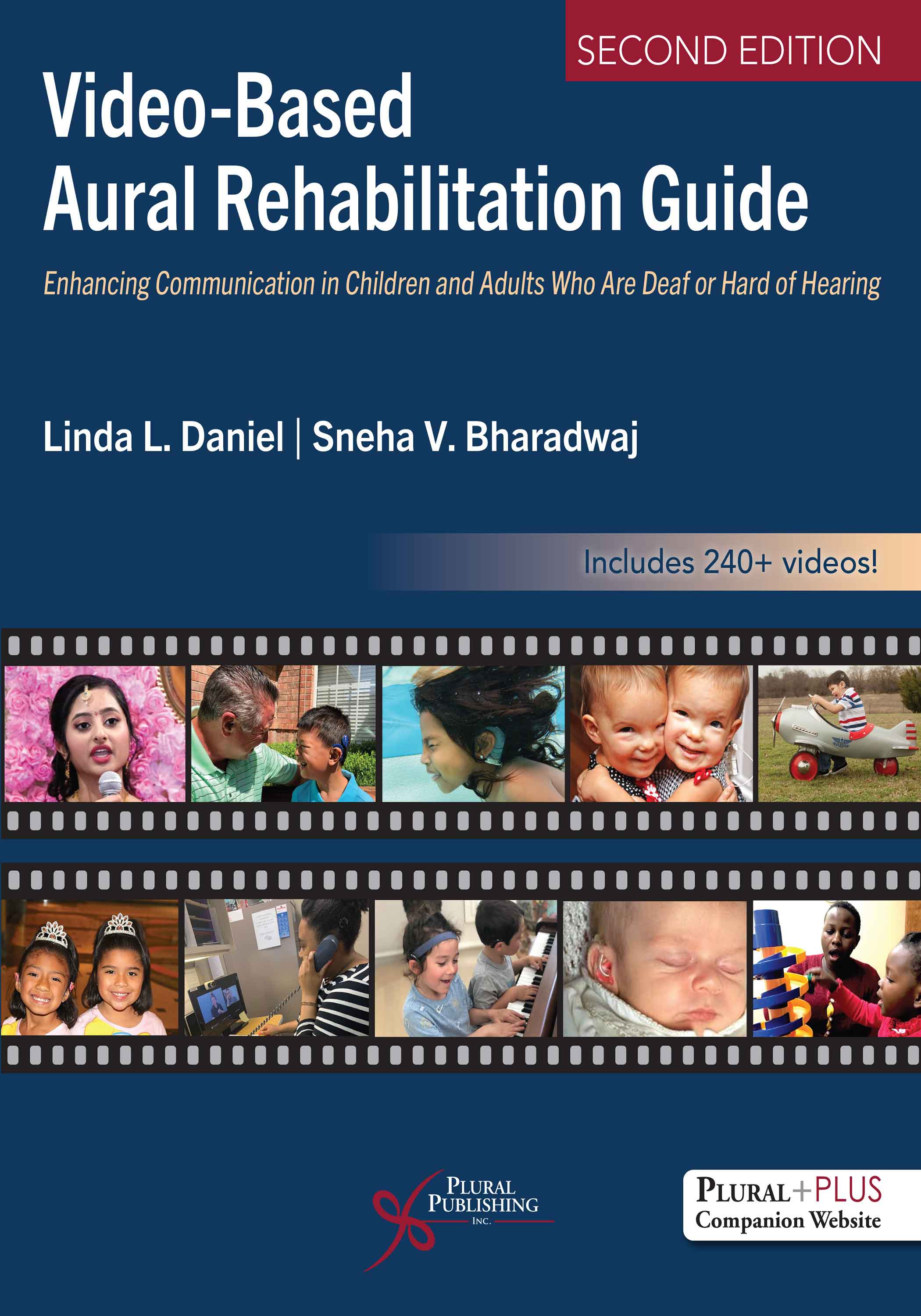
Video-Based Aural Rehabilitation Guide: Enhancing Communication in Children and Adults Who Are Deaf or Hard of Hearing
Second Edition
Linda L. Daniel, Sneha V. Bharadwaj
Details: 426 pages, B&W, Softcover, 8.5" x 11"
ISBN13: 978-1-63550-753-9
© 2026 | Available
For Instructors
Purchase
Includes 240+ Videos!
Video-Based Aural Rehabilitation Guide: Enhancing Communication in Children and Adults Who Are Deaf or Hard of Hearing, Second Edition integrates chapter text with 243 captioned videos and continues to be an important educational resource for aural rehabilitation (AR) courses. This resource is geared toward undergraduate and graduate students as well as practicing professionals in speech-language pathology, audiology, and education of the deaf and hard of hearing (DHH). It is intended to enrich knowledge and skills by providing an overview of principles and practices in AR.
The extensive videos are also an invaluable resource for students enrolled in a clinical or student teaching practicum. Videos feature speech-language pathologists, audiologists, Listening and Spoken Language Specialists, teachers of the deaf and hard of hearing, early interventionists, otologists, and occupational therapists practicing in settings such as clinics, private practices, schools, hospitals, and the community. Topics addressed in the text and videos include an overview of AR, hearing technologies, factors that affect intervention outcomes, diverse populations, fundamentals of audiometric and communication assessment, AR procedures across the lifespan, educational supports, quality of life, counseling, and advocacy for children and adults who are DHH and their families.
New to the Second Edition
- 40 additional captioned videos on new topics
- New chapter on serving persons from diverse backgrounds
- Expanded content in each chapter, including basic audiometric assessment and new models for assessment and treatment
- Discussion of the continuum of communication modes in all chapters
- Descriptions of goals, strategies, and client responses for all therapy videos
Key Features
- 243 captioned videos and video summaries at the end of every chapter - view the full list of videos here
- Contributions from 21 leading experts in audiology, speech-language pathology, Listening and Spoken Language, medicine, education, research, and psychology
- Chapters include case presentations, recommended resources for further learning, and study questions with answer keys
PluralPlus Online Ancillaries
For instructors: PowerPoint Slides, Videos
For students: Videos
For professionals: Videos
Preface
Acknowledgments
Contributors
Dedication
Chapter 1. Overview of Aural Rehabilitation
Sneha V. Bharadwaj, Linda L. Daniel, and Susan G. Allen
Learning Objectives
Introduction
Overview of Anatomy and Physiology of the Auditory System
Brief Review of Audiology
Classification of Hearing Loss
Implications of Hearing Loss
Comorbidities
Interprofessional Practice and Collaboration
Treatment Options for Persons Who Are DHH
Cultural Diversity
Scope of Aural Rehabilitation Services
Impact of Hearing Loss on the Individual: The International Classification of Functioning, Disability, and Health
Advocacy
Spotlight on a Family of Four With Profound Prelinguistic Deafness: Parental Advocacy
Summary
References
Recommended Internet Sites for Further Learning
Study Questions
Answer Key
Chapter 2. Hearing Aids and Hearing Assistive Technology Systems
Kathryn B. Wiseman, Amyn M. Amlani, and Sneha V. Bharadwaj
Learning Objectives
Introduction
Candidacy and Selection for Prescription Hearing Aids
Prefitting Considerations for Prescription Hearing Aids
Hearing Aid Styles
How Does a Hearing Aid Work?
Procedures for Fitting and Verification of Prescription Hearing Aids
Counseling and Education
Teleaudiology and Aural Rehabilitation
Cultural Responsiveness
Challenges With Obtaining and Using Hearing Aids
Daily Care and Troubleshooting of Hearing Aids
Hearing Assistive Technology Systems
Nontraditional Hearing Aids
Over-the-Counter Hearing Aids
Spotlight on Roberta: Audiologic Consultation
Summary
References
Recommended Internet Sites for Further Learning
Study Questions
Answer Key
Chapter 3. Neuroprosthetic Hearing Devices for Children and Adults: Cochlear Implants and Auditory Brainstem Implants
Sneha V. Bharadwaj, Linda L. Daniel, B. Robert Peters, and Kristin King
Learning Objectives
Introduction
Cochlear Implants
Cochlear Implant: Parts and Function
Candidacy
Interprofessional Collaborations
Surgical and Technological Considerations
Cochlear Implant Surgery
Cochlear Implant Programming
Reimbursement
Aural Rehabilitation Following Cochlear Implantation
Spotlight on Tucker: Early Identification and Intervention
Summary of Cochlear Implants
Introduction to Auditory Brainstem Implants
Candidacy
Surgery and Risks
Interprofessional Collaborations
A Case Presentation: Five-Year-Old Justine
Communication Outcomes in Persons With an ABI
Spotlight on Aanya: A Child With an ABI
Summary
References
Recommended Internet Sites for Further Learning
Study Questions
Answer Key
Chapter 4. Factors Influencing Intervention Strategies and Communication Outcomes in Children Who Are Deaf or Hard of Hearing
Ellen A. Rhoades, Linda L. Daniel, and Sneha V. Bharadwaj
Introduction
Hearing Loss
Hearing Technology
Language Environment
Cultural Diversity
Support Systems
Neurodevelopmental Differences
Spotlight on Jaxson: A Child With CHARGE Syndrome
Summary
References
Study Questions
Answer Key
Chapter 5. Aural Rehabilitation Considerations for Persons Who Are Deaf or Hard of Hearing From Culturally Diverse Backgrounds
Alliete R. Alfano, Michael Douglas, and Daniela B. Reyes
Learning Objectives
Introduction
Terminology and Frameworks Relevant to Providing Culturally Responsive Services to Children and Adults Who Are DHH
Terminology and Misconceptions Related to Second Language Acquisitions and Bi/Multilingualism
Assessment Procedures for Bi/Multilingual Persons Who Are Deaf or Hard of Hearing
Case Presentation on Hiti: Assessment of a Bilingual, Bicultural Child
Treatment Considerations for Working With Persons Who Are DHH and Culturally Diverse
Strategies for Intervention for Persons Who Are DHH and From Culturally Diverse Backgrounds
Spotlight on Amari: Culturally Adapted Intervention
Summary
References
Recommended Internet Sites for Further Learning
Resources for Other Languages
Study Questions
Answer Key
Chapter 6. Fundamentals of Assessment of Communication Needs in Children and Adults Who Are Deaf or Hard of Hearing
Sneha V. Bharadwaj and Jill Duncan
Learning Objectives
Introduction
Interprofessional Collaboration
Objectives of Assessment
Types of Assessment
Challenges in Assessing Children Who Are DHH and Use Manual/Visual Communication Modes
Cultural Diversity
Special Considerations in the Assessment of Children and Adults Who Are DHH
An Ecological Approach to Assessment in Aural Rehabilitation: An Adaptation of Bronfenbrenner’s Bioecological Systems Model
Application of the Bioecological Model to Assessment of Persons Who Are DHH
Spotlight on Silas: A Child Who Is Deaf and Has Social Communication Needs
Summary
References
Study Questions
Answer Key
Chapter 7. Intervention After Early Diagnosis of Hearing Loss: A Listening and Spoken Language Approach
Linda L. Daniel and Christina Perigoe
Learning Objectives
Introduction
Overview of the Listening and Spoken Language Approach
A Diagnostic Approach to Intervention
Diagnostic Approach to Intervention: Assessment of Hearing Technology
Evidence-Based Practice
Principles of Certified LSLS Auditory-Verbal Therapists (LSLS Cert. AVT)
Spotlight on Josiah: Establishing an Auditory Foundation for Listening and Spoken Language
References
Recommended Internet Sites for Further Learning
Study Questions
Answer Key
Chapter 8. Educational Supports for Students Who Are Deaf or Hard of Hearing in Primary Through Postsecondary Settings
Sarah D. Wainscott, Kaitlyn Millen, and Sneha V. Bharadwaj
Learning Objectives
Introduction
Supporting a Continuum of Communication Approaches
Facilitating Educational Placement Decisions
Identifying and Implementing Communication-related Accommodations
Interprofessional Collaboration
Utilizing Teaching Strategies
Provision of Ongoing Communication Supports
Personal Safety
Facilitating Self-Identity and Self-Determination
Promoting Post-secondary Transition Planning and Advocacy
Brenda’s Struggle With Hearing Loss
Spotlight on the Oklahoma School for the Deaf and Sunshine Cottage School for the Deaf: Two Educational Philosophies
Summary
References
Recommended Internet Sites for Further Learning
Study Questions
Answer Key
Chapter 9. Aural Rehabilitation for Adults Who Are Deaf or Hard of Hearing
Cornetta L. Mosley, Linda L. Daniel, Carol G. Cokely, and Linda M. Thibodeau
Learning Objectives
Introduction
Factors That Influence Aural Rehabilitation
Assessment and Goal Setting
Developing an Aural Rehabilitation Plan
Assessing Outcomes
Developing Aural Rehabilitation Programs
Speech Production Intervention
Spotlight on Cindy: Self-Determination and Self-Advocacy
Summary
References
Recommended Internet Sites for Further Learning
Study Questions
Answer Key
Chapter 10. Quality of Life, Counseling, and Advocacy for Children and Adults Who Are Deaf or Hard of Hearing
Linda L. Daniel, Andrea D. Warner-Czyz, Roshini Kumar, and Sarah E. Crow
Learning Objectives
Introduction
Effects of Hearing Loss on Quality of Life
Counseling Persons Who Are DHH
Advocacy
Spotlight on Kim: Advocacy for People With Deafblindness
Summary
References
Recommended Internet Sites for Further Learning
Study Questions
Answer Key
Index
Video-Based Aural Rehabilitation Guide: Enhancing Communication in Children and Adults Who Are Deaf and Hard of Hearing, Second Edition comes with access to supplementary student and instructor resources on a PluralPlus companion website.
The companion website is located at: https://www.pluralpublishing.com/publication/vbarg2e
STUDENTS:
This textbook comes with Videos.
To access the student resources, you must register on the companion website and log in using the access code located in the front of your textbook.
INSTRUCTORS:
The instructor resources include PowerPoint Slides and Videos.
To access the instructor resources, you must contact Plural Publishing, Inc. to be verified as an instructor and receive your access code.
Email: instructormaterials@pluralpublishing.com
Tel: 866-758-7251 (toll free) or 858-492-1555
*Note for students: If you have purchased this textbook used or have rented it, your access code will not work if it was already redeemed by the original buyer of the book. Plural Publishing does not offer replacement access codes for used or rented textbooks.
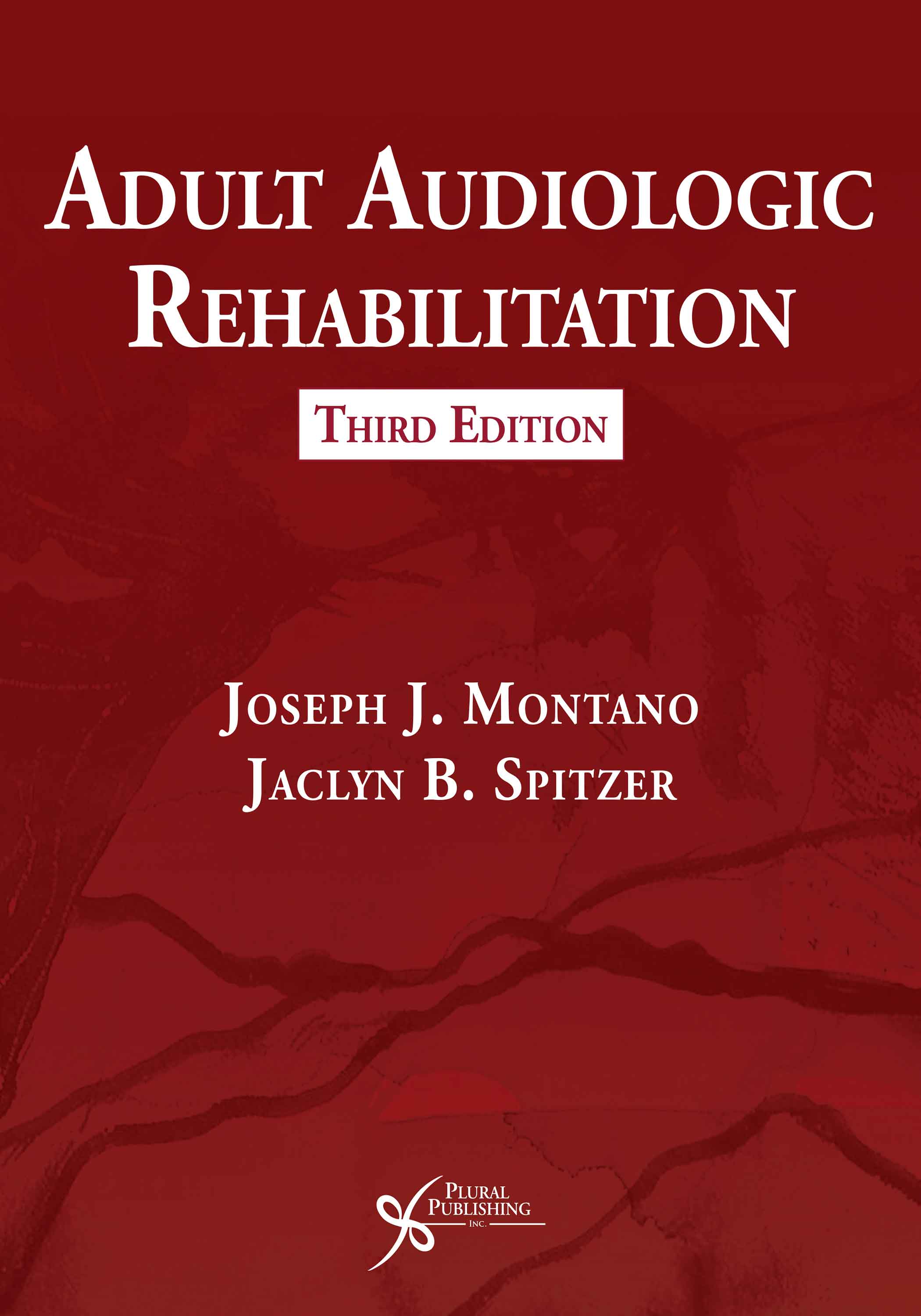
Adult Audiologic Rehabilitation
Third Edition
Joseph J. Montano, Jaclyn B. Spitzer
Details: 610 pages, B&W, Softcover, 8.5"x11"
ISBN13: 978-1-63550-143-8
© 2021 | Available
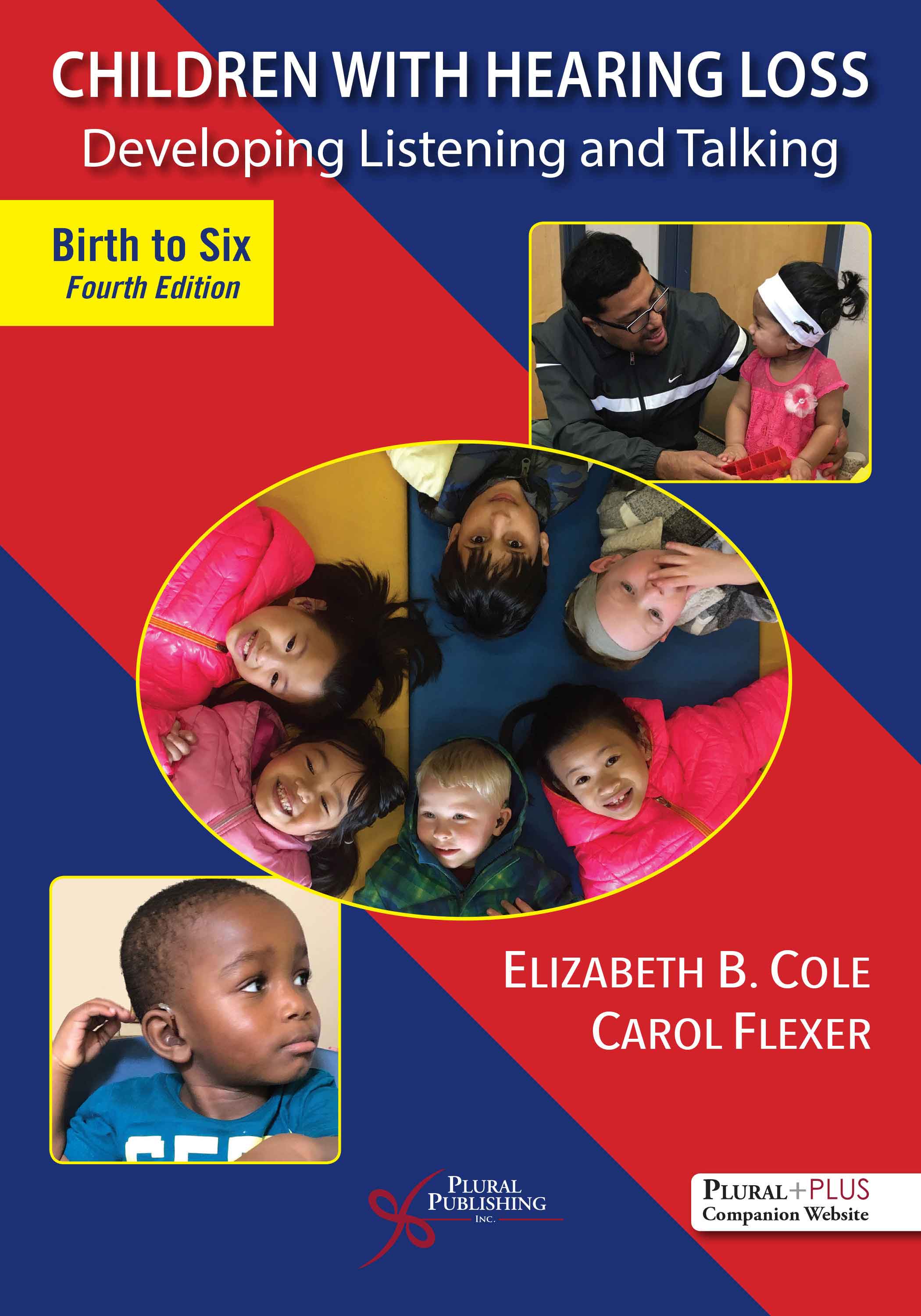
Children with Hearing Loss: Developing Listening and Talking, Birth to Six
Fourth Edition
Elizabeth B. Cole, Carol Flexer
Details: 411 pages, B&W, Softcover, 7" x 10"
ISBN13: 978-1-63550-154-4
© 2020 | Available
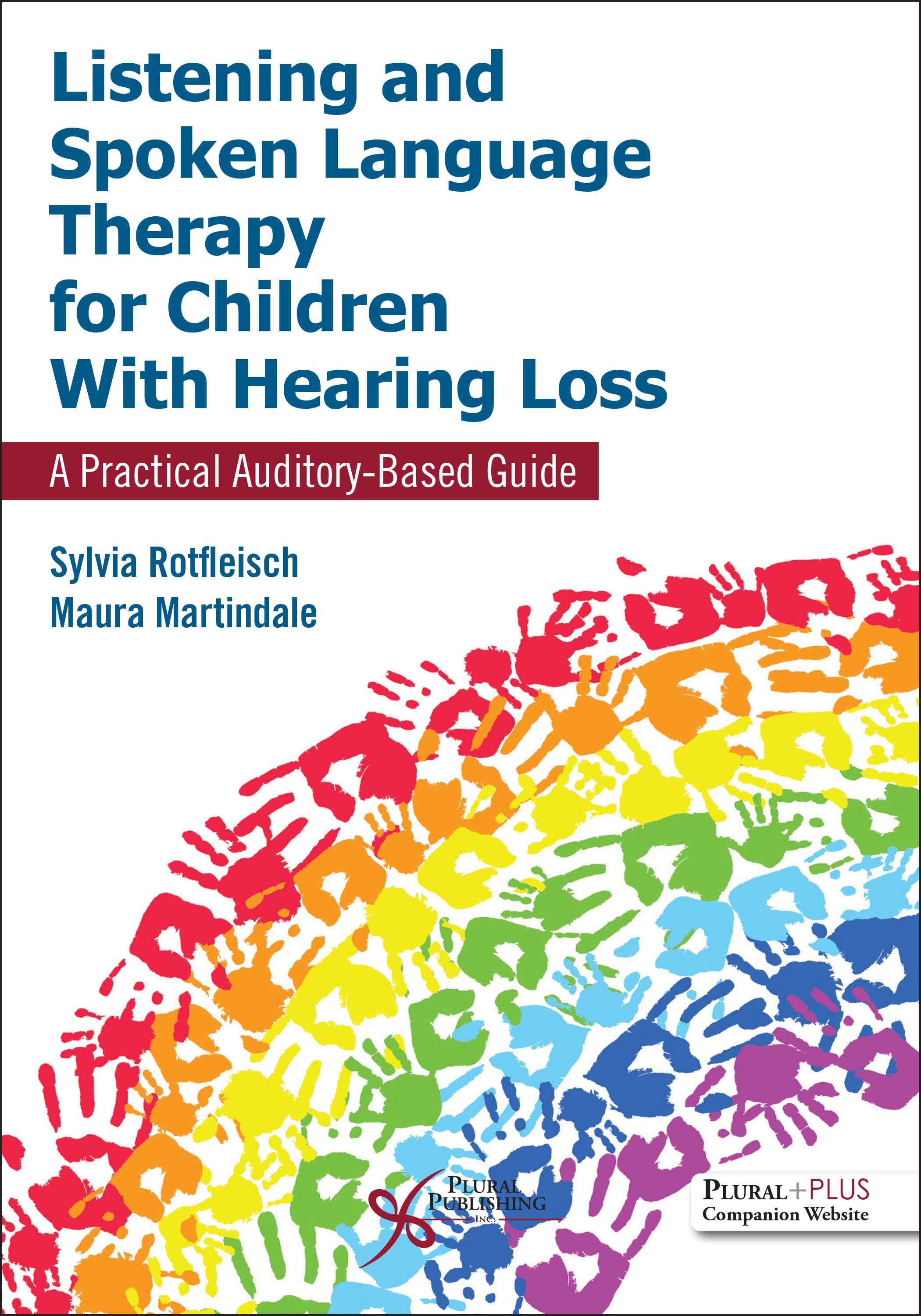
Listening and Spoken Language Therapy for Children With Hearing Loss: A Practical Auditory-Based Guide
First Edition
Sylvia Rotfleisch, Maura Martindale
Details: 310 pages, Full Color, Softcover, 7" x 10"
ISBN13: 978-1-63550-387-6
© 2023 | Available
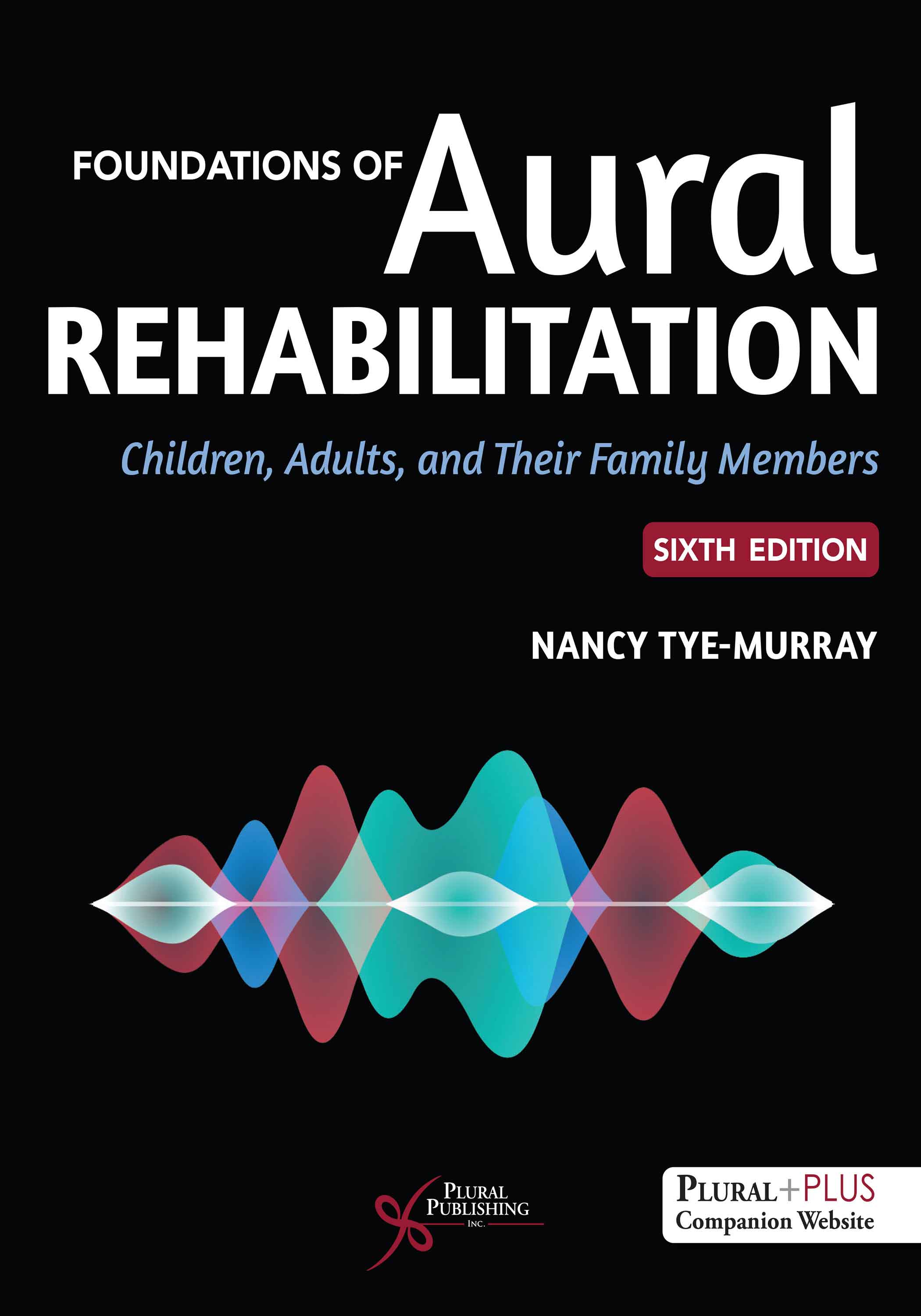
Foundations of Aural Rehabilitation: Children, Adults, and Their Family Members
Sixth Edition
Nancy Tye-Murray
Details: 567 pages, 2-Color, Softcover, 8.5" x 11"
ISBN13: 978-1-63550-420-0
© 2024 | Available
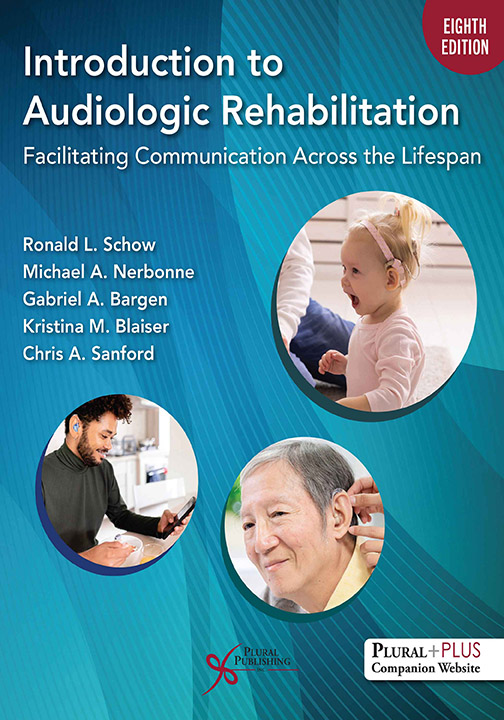
Introduction to Audiologic Rehabilitation: Facilitating Communication Across the Lifespan
Eighth Edition
Ronald L. Schow, Michael A. Nerbonne, Gabriel A. Bargen, Kristina M. Blaiser, Chris A. Sanford
Details: 542 pages, 2-Color, Softcover, 8.5" x 11"
ISBN13: 978-1-63550-755-3
© 2026 | Available
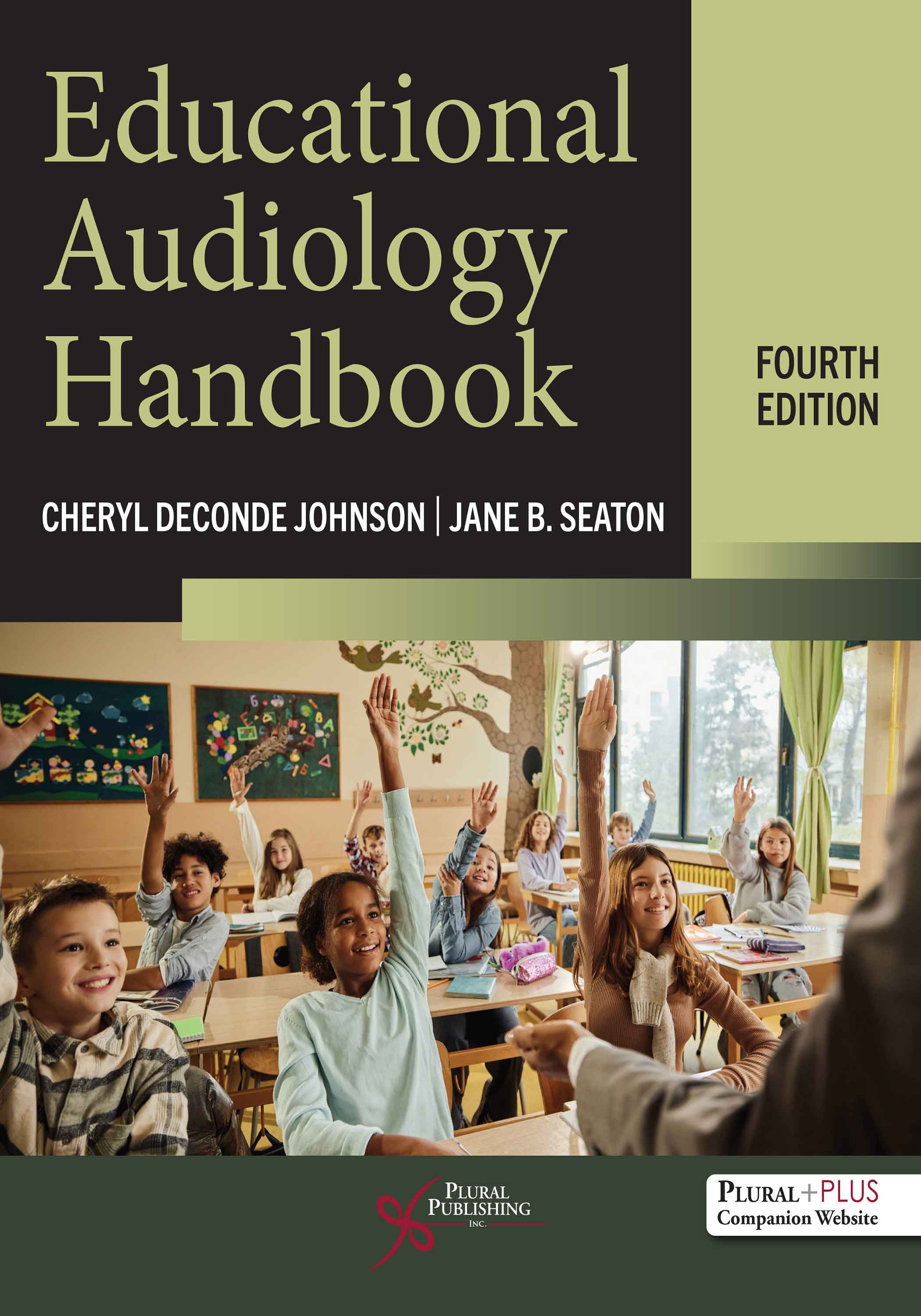
Educational Audiology Handbook
Fourth Edition
Cheryl DeConde Johnson, Jane B. Seaton
Details: 669 pages, B&W, Softcover, 8.5" x 11"
ISBN13: 978-163550-754-6
© 2026 | Available

